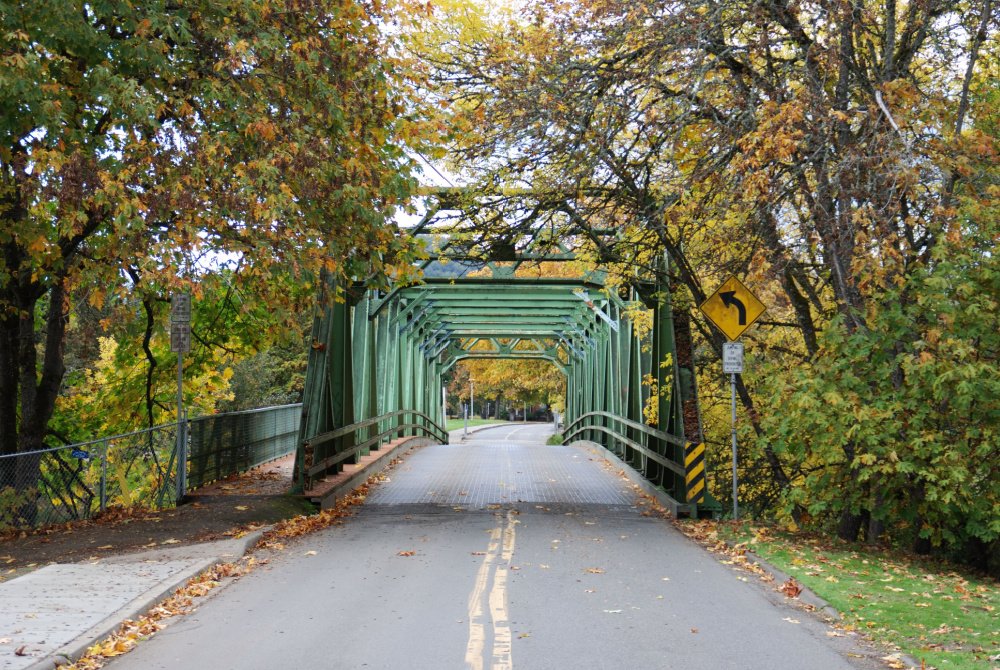Based in Oregon, the Ford Family Foundation Is All About Small Towns and Rural Communities
/A bridge near Roseburg, Oregon. TFoxFoto/shutterstock
In states across the country, most people live in just a few cities, while the rest of the map remains vast and sparsely populated. This is true in the state of Oregon, where the Ford Family Foundation (FFF) operates and focuses exclusively on being a rural advocate. With local offices in Roseburg and Eugene, FFF has funded over 8,000 grants, helped over 5,000 students earn college degrees and distributed more than 35,000 books across the region.
Here’s an overview of how the Ford Family Foundation (not to be confused with the Ford Foundation) gives to rural organizations in Oregon and how to approach this funder for support.
Three impact categories
FFF adopted a 10-year strategic plan in 2022 to focus its giving on family, education and community. Foundation leaders derived this plan from the observation that people in rural areas often do not have access to the same resources as those living in big cities.
Family-related grants back parent and caregiver support, family financial stability and child abuse prevention. The funder takes a two-generation approach to addressing the basic needs, financial concerns and mental health of parents and caregivers, seeing as these things impact the lives of the children they care for as well. Education grants target affordable and high-quality early childhood education, college scholarship programs, and students of every age. FFF’s education priorities are preschool education, transitioning from daycare or Pre-K to structured classrooms, planning for life after high school, and postsecondary completion.
FFF also funds community building among rural Oregon business leaders, alums and families. The foundation is interested in community economic development to help rural businesses thrive and organizational capacity building among rural nonprofits. FFF launched Growing Rural Oregon in 2021 to support rural entrepreneurs.
Types of grant opportunities
The foundation awards technical assistance grants of up to $5,000 to help nonprofits send staff to conferences, develop leadership experience, work on strategic planning and hire outside consultants. FFF's Good Neighbor grants help nonprofits to support their initiatives or handle unforeseen emergencies. FFF awards grants of over $25,000 for projects aligning with its mission, which groups can use for nonprofit programs, general operations or capital projects.
The foundation also has a visual arts program to celebrate its founder’s lifelong interest in the arts. FFF awards annual fellowships to visual artists and institutional grants to support capital improvements for visual art spaces, as well as the exhibition and documentation of visual art. There are also artist-in-residency programs, capacity-building opportunities for artists and a career opportunity grant program. Meanwhile, the Critical Conversations initiative is a collaborative effort that features visiting curators and arts writers.
Applying for a grant
This foundation aims to provide a convenient grant application process with an open-door approach. FFF maintains an online grant application process that begins with registering on its grant portal. Visit the open grants page to learn about current funding opportunities and submit an application for the relevant program. Grantseekers can expect to hear a decision back within six to 10 weeks for technical assistance and Good Neighbor requests, but more like three to six months for other requests.
The Ford Family Foundation serves all rural Oregon communities as well as Siskiyou County, California. It is a transparent and accessible funder that welcomes general or grant-related questions from grantseekers. Learn more about this funder in IP’s full profile of the Ford Family Foundation, which is part of our Oregon funding guide.
Related: Rural-to-Rural Partnerships: Leveling the Playing Field to Secure Federal Funding









